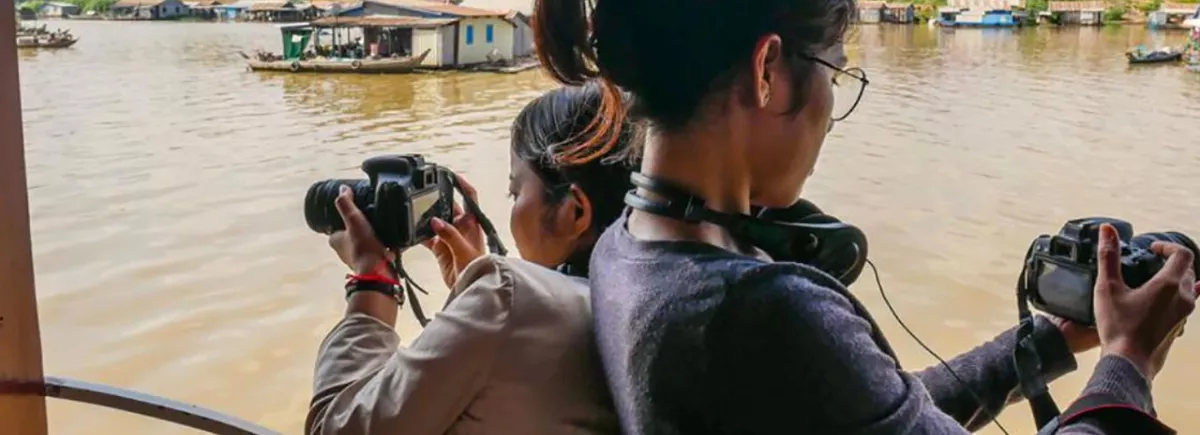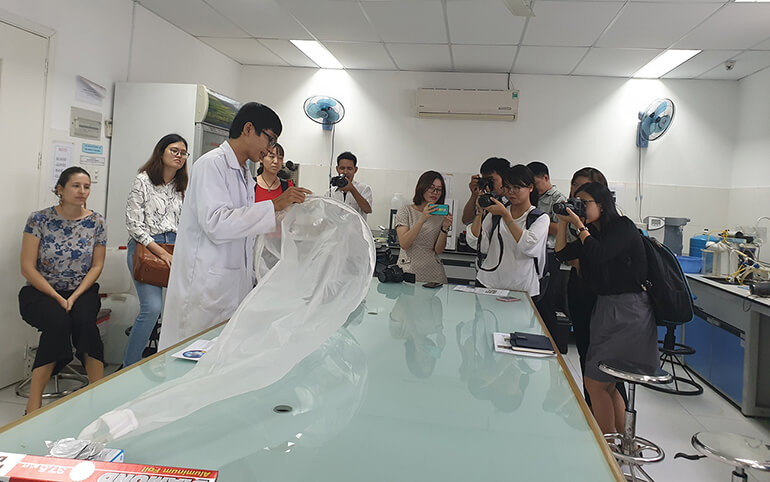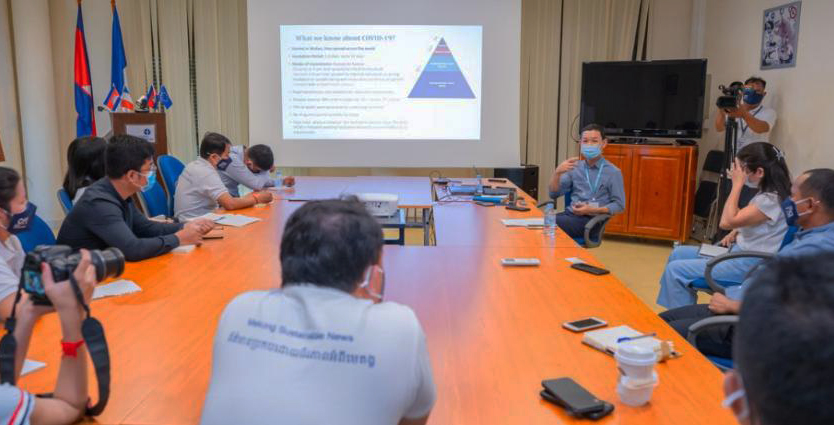
Evaluation of the Mekong: Sustainable News project
Related project
Mekong: Sustainable NewsWith a view to helping to increase the reporting of environmental issues in the Mekong region, CFI ran the Mekong: Sustainable News project between April 2019 and April 2021. Following its completion, the project was evaluated by an external company, Oversee Advising Group.
Summary of the main findings.
The project involved journalists from four countries (Laos, Vietnam, Cambodia and Myanmar) over a period of two years. It aimed to consolidate the fundamentals of digital scientific journalism and to hone the ability to produce content on environmental protection, climate change, sustainable production and consumption, and health.
Adapting to needs and identifying effective forms of support
The project has demonstrated flexibility by developing strategies on a country-by-country basis, drawing upon lessons learned during the first year of implementation. This made it possible to diversify the forms of support provided, to better meet expectations and to attract beneficiaries with varied profiles, which are likely to reach a wider audience. This all contributed to making the project highly successful (142 beneficiaries compared with the 80 expected) and allowed for experimentation with different types of support, which revealed that some promoted a higher rate of production among beneficiaries than others.
This was the case with the long-term 56% of the beneficiaries were womentraining, coupled with mentoring, which was provided in Vietnam, the scientific conferences coupled with mentoring and micro-financing or the financing of newsrooms. Running the project with support from local partners contributed to the effectiveness and the impact of the project.
Meetings in the form of presentations during training, scientific conferences or field visits aroused a strong interest among journalists. The Institut de Recherche pour le Développement (French National Research Institute for Sustainable Development, IRD) and the Pasteur Institut were involved in these. Mekong: Sustainable News therefore raised some interesting questions regarding the crossover between the roles of information and communication.

In addition, the “gender-based” approach of the project encouraged the promotion of women for the production of content relating to environmental issues. 56% of the beneficiaries were women, and between them they produced 67% of the content. Nevertheless, this parity was not enough to ensure the handling of the subjects from the point of view of “gender”.
Limited impact due to the lack of involvement by newsrooms in the project
The training promoted an increase in the dissemination of content relating to environmental issues, which, in some cases, continued once the project had come to an end. However, few media outlets have a section dedicated to the environment. The often “traditional” output therefore rarely reflects all of the contributions made by the project (an approach that is both human and scientific, use of infographics and illustrations, citation of sources), since the journalists who received the training provided by the project are bound by the practices in place in their newsroom.
It is essentially the beneficiaries with start-up or independent media profiles (such as Wapatoa and CamboJa in Cambodia) that turned the editorial techniques that they learned to their benefit to boost the attractiveness of their site. Where support was provided to newsrooms, they attempted to reach a younger audience through the use of social media.
Therefore, the fact that the project targeted journalists without involving their newsrooms did not contribute to the environment being seen as a “profitable” subject area by the media. In addition, health and safety-related topics were of interest to the journalists, but approaching them from the angle of sustainable development also raises the challenge of access to data.



